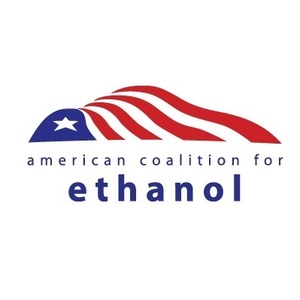ACE participates in OPIS LCFS and carbon markets workshop

December 2, 2021
BY American Coalition for Ethanol
American Coalition for Ethanol consultant Jonathon Lehman speaks today on behalf of the organization on a panel entitled “Reducing Carbon Intensity in Renewable Fuels with Climate Smart Farming Practices” with representatives from Gevo and the American Society of Agronomy at the OPIS LCFS and Carbon Markets Workshop in San Francisco, California.
Lehman’s company Cultivating Conservation helps leverage U.S. Department of Agriculture conservation programs to address critical environmental challenges to benefit farmers and natural resources. Combined with his experience in crafting ethanol policy, Lehman is uniquely qualified to speak on the development and deployment of the ACE-led Regional Conservation Partnership Program (RCPP) project to secure farmers access to LCFS markets based on their adoption of climate-smart agricultural practices.
Advertisement
Advertisement
“USDA estimates U.S. farmers currently store 20 million metric tons of carbon per year and could store an additional 180 million metric tons annually, representing 12 to 14 percent of U.S. carbon emissions through the adoption of conservation practices,” Lehman said. “Despite this potential, state and federal low carbon fuel programs do not count on-farm carbon benefits toward greenhouse gas emissions reduction targets.”
“Regulators, such as those in California’s LCFS program, do not yet credit GHG reductions achieved through carbon sequestering conservation practices in ethanol feedstock production, in part, because they want better, localized quantification, verification and modeling protocols to grant access to these markets,” Lehman added. “The ACE-led RCPP project will provide a prototype for how clean fuel policies can reward farmers for climate-smart practices that reduce the overall carbon intensity of corn ethanol, while also serving as a practical application to gain regulators’ acceptance and build farmer interest by demonstrating the economic value of clean fuel policies.”
Advertisement
Advertisement
Panelist David Clay of the American Society of Agronomy and professor at South Dakota State University, a partner on the RCPP project, is also contributing to the RCPP by helping study the environmental and economic benefits of changes in production practices in the participating region in South Dakota. The results will be used to establish a non-proprietary verification system that will allow farmers and ethanol producers to fully benefit from LCFS markets.
Related Stories
The U.S. Energy Information Administration maintained its forecast for 2025 and 2026 biodiesel, renewable diesel and sustainable aviation fuel (SAF) production in its latest Short-Term Energy Outlook, released July 8.
XCF Global Inc. on July 10 shared its strategic plan to invest close to $1 billion in developing a network of SAF production facilities, expanding its U.S. footprint, and advancing its international growth strategy.
U.S. fuel ethanol capacity fell slightly in April, while biodiesel and renewable diesel capacity held steady, according to data released by the U.S. EIA on June 30. Feedstock consumption was down when compared to the previous month.
XCF Global Inc. on July 8 provided a production update on its flagship New Rise Reno facility, underscoring that the plant has successfully produced SAF, renewable diesel, and renewable naphtha during its initial ramp-up.
The U.S. EPA on July 8 hosted virtual public hearing to gather input on the agency’s recently released proposed rule to set 2026 and 2027 RFS RVOs. Members of the biofuel industry were among those to offer testimony during the event.
Upcoming Events










